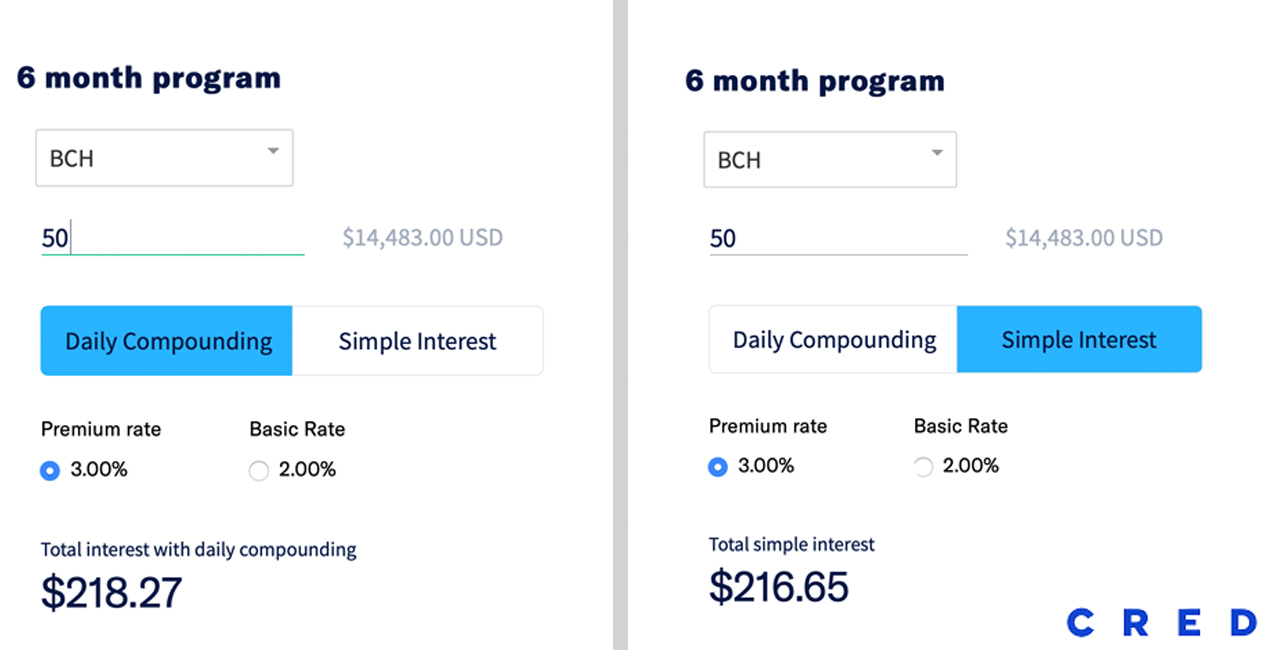During the last two years investment vehicles that allow crypto asset holders to gather yields have grown exponentially and anyone can make passive income with a number of avenues. Staking validators, decentralized finance (defi) lending services, and interest rate earning accounts provide digital currency holders with the means to make their money work for them.
Crypto Earning and Passive Income
Crypto assets are an investment in the future of money, and many people have made millions and even billions by simply trading or holding for very long periods of time. Today there are 5,700 crypto assets in existence, and people can make money off of a great majority of them by leveraging staking validators or wallets, storing digital currencies with custodians that pay interest, and accumulating yields off of certain defi lending applications. The data and analytics web portal stakingrewards.com offers insight into over 666 providers that offer staking and earning services that accrue interest.
Staking Validators and Wallets
Staking providers are investment platforms that allow users to stake proof-of-stake (PoS) coins and the platform pays all of its users on a weekly or monthly basis. A decent number of staking validators take a fee for processing the PoS payouts. A few wallets also offer PoS staking services too, as users can simply store their coins within the client and gain staking yields.
Staking providers include platforms like Mycointainer, Staked, Just Mining, Hashquark, Figment Networks, Everstake, Infstones, and more. Staking yields are variable and depend on the coins staked, but users can take in anywhere between 1-100% in staking yields.

For instance, Hashquark users can stake coins like dash, cosmos, irisnet, qtum, tezos. As mentioned above each coin has a different earning rate. Cosmos can net people up to 8.09% on the Hashquark platform, while tezos offers up to 5.5%.
People interested in staking can also leverage wallets that also stake PoS coins as well. Wallets like Cake Defi, Atomic Wallet, Chainode Tech, Math Wallet, and Gaurda Wallet. Atomic Wallet offers the most supported coins today, as the platform supports assets like tron, cosmos, tezos, neo, vechain, algorand, komodo, and band. Of course, the Band Protocol has been doing well price-wise, and the underlying band asset can yield over 17% today with Atomic Wallet.

Custodial Interest Bearing Accounts and Decentralized Finance
Additionally, digital currency holders can leverage defi platforms and custodial interest-bearing accounts on exchanges in order to obtain passive income as well. Defi applications have been all the rage these days and platforms like Aave, Nuo Network, Compound, Dydx, and more are leveraged daily by crypto investors so they can accrue interest.

For example, Aave allows people to earn 0.02% to 4.92%. Aave supports 15 different digital assets like USDC, ETH, DAI, REP, LINK, TUSD, and others. The defi application Ddex offers 0.10% to 14.45% for assets like bitcoin (BTC), tether (USDT), and DAI. Across the universe of defi platforms, exchanges, and custodial providers, stablecoins are the hottest commodity right now. Stablecoins like DAI, USDT, and USDC offer much higher yields these days because of the demand.

A number of well known exchanges, earning services, and custodians offer interest-bearing accounts for nearly every digital asset under the sun. People can earn up to 8% p.a. interest by leveraging Crypto.com and the platform claims to offer up to 12% for stablecoins.

Blockfi customers can earn 8.6% annually for their crypto holdings for coins like BTC, ETH, LTC, USDC, GUSD, and PAX. There’s no minimum balance required to earn interest using the Blockfi platform the company website notes.

The popular platform Cred allows people to earn monthly interest and users can also earn daily compound interest as well. Cred users can pledge coins like BCH, ETH, BTC, LINK, USDT, and a myriad of other crypto assets. There’s also a calculator on the Cred website which shows people how much they can earn depending on the program chosen.

For example, if a user pledged 50 bitcoin cash (BCH – over $14k) using the six-month program and chose “daily compounding” at 3%, the person could net $218 in daily compounded total interest. People interested in earning yields can visit the web portal stakingrewards.com which offers a calculator as well. Cred has over 60,000 customers throughout 196 countries and over $200 million in crypto assets pledged today.
Crypto Earning and the Risks Involved
Getting into staking coins, lending, and earning programs can add risk to the investment. Some of the aforementioned platforms above are exchanges and custodial services, so you do risk storing your assets with a third-party provider. Exchanges and custodial solutions can get hacked, lose funds, or go bankrupt.
People can store PoS coins on a staking wallet in a noncustodial fashion, but they are still exposed to the crypto market price variances. Defi platforms are not perfect either and a lot of lending concepts could be crushed by a ‘black swan’ event like March 12, 2020. The Maker community, which is the most dominant defi platform as far as total value locked (TVL), suffered on ‘Black Thursday’ as millions of dollars worth of DAI were left under-collateralized.
Despite some of the risks involved, the lending interest rates and compounded yields are much larger than today’s traditional banking services. Another great aspect is people are onboarded much faster in the crypto ecosystem than the traditional financial system.
Individuals don’t need to go through a bank to access massive wealth, lend funds, or gather significant yields from any of these services. While most people store their crypto coins for long periods of time, many people will find value in putting their crypto to work by earning passive income.
What do you think about all the platforms and services that allow people to make passive income just by storing their crypto assets? Let us know what you think about this subject in the comments section below.
Image Credits: Shutterstock, Pixabay, Wiki Commons, Various logos,
Disclaimer: This article is for informational purposes only. It is not a direct offer or solicitation of an offer to buy or sell, or a recommendation or endorsement of any products, services, or companies. Bitcoin.com does not provide investment, tax, legal, or accounting advice. Neither the company nor the author is responsible, directly or indirectly, for any damage or loss caused or alleged to be caused by or in connection with the use of or reliance on any content, goods or services mentioned in this article.



